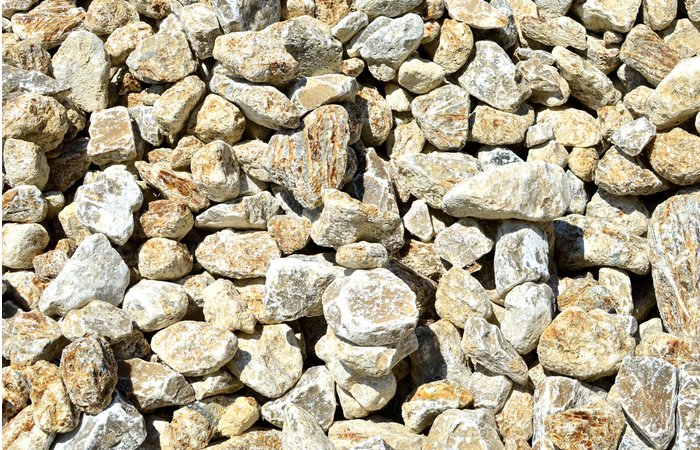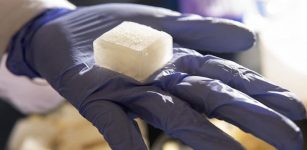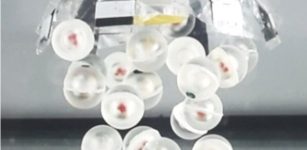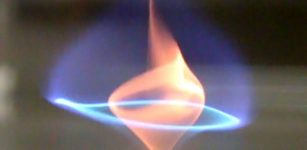New Synthetic Material Can Completely Replace Natural Gypsum In The Construction Industry
Eddie Gonzales Jr. – MessageToEagle.com – An international team of scientists has proposed a method of production of high-quality gypsum binders based on synthetic calcium sulfate dihydrate produced from industrial waste.
Tests of the obtained material have shown that it not only meets all the requirements for materials of this class, but also surpasses binders based on natural gypsum in several parameters. The work has been published in the Journal of Industrial and Engineering Chemistry.
Natural gypsum stone. Credit: Maksim Safaniuk
Gypsum binders are widely used in construction. They have valuable properties such as low weight, low heat and sound conductivity, fire resistance, and they are easy to shape. In addition, gypsum-based binders are hypoallergenic and do not cause silicosis, an occupational disease for builders and repairmen caused by inhalation of dust containing free silicon dioxide. At the same time, the cost of gypsum materials is low, as are the costs of heat energy for their production.
A group of scientists from NUST MISIS, Belarusian State Technological University, University of Limerick and the Institute of General and Inorganic Chemistry of the National Academy of Sciences of Belarus has proposed an innovative method of producing high-strength binders based on synthetic gypsum obtained from industrial waste by neutralizing spent sulfuric acid and carbonate components. Researchers mixed sulfuric acid from waste heat-resistant fibers with water and limestone. The content of calcium sulfate dihydrate in the obtained synthetic gypsum was at least 95% of the mass of the final product.
In the course of the study, scientists obtained three types of synthetic gypsum samples: building gypsum, high-strength gypsum and anhydrite. The building gypsum was made using traditional technology in a gypsum boiler. Anhydrite was also produced according to the traditional technology for this type of gypsum material by firing followed by cooling. An autoclave was used to synthesize high-strength gypsum.
The researchers point out that one of the advantages of producing building gypsum materials from synthetic calcium sulfate dihydrate is that the synthetic gypsum is obtained immediately in the form of a powder product. In the traditional production of gypsum powder, gypsum has to be crushed to the desired state, which requires a significant amount of electricity. Thus, the method proposed by scientists for the production of binders based on synthetic gypsum will significantly reduce production costs by simplifying the production technology.
At the same time, the building gypsum obtained in the course of the study fully meets the requirements for gypsum binders of the G5 – G7 grades, for high-strength gypsum – the requirements for gypsum grades G10 – G22.
Synthetic gypsum, obtained from waste sulfuric acid and limestone waste, can completely replace natural gypsum for the production of gypsum binders in countries that do not have gypsum stone deposits.
Written by Eddie Gonzales Jr. MessageToEagle.com Staff











